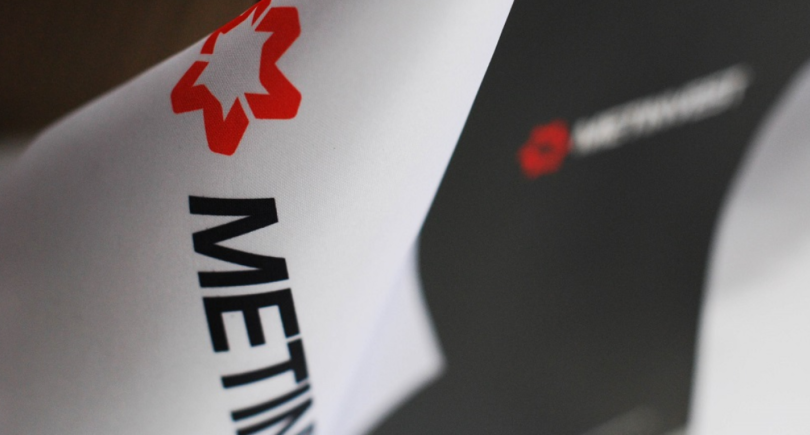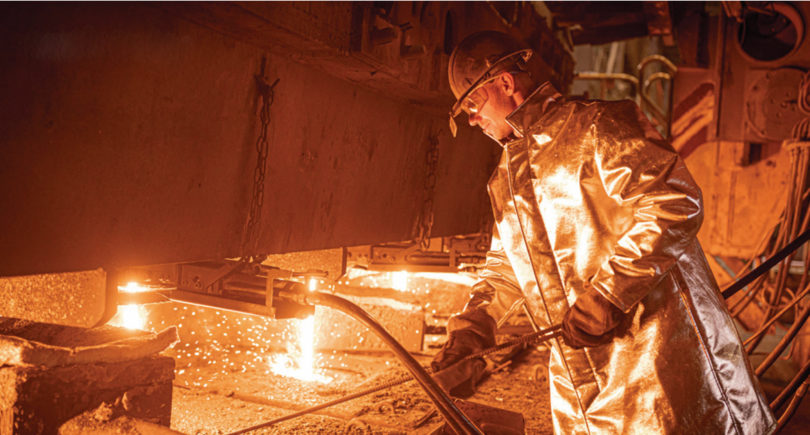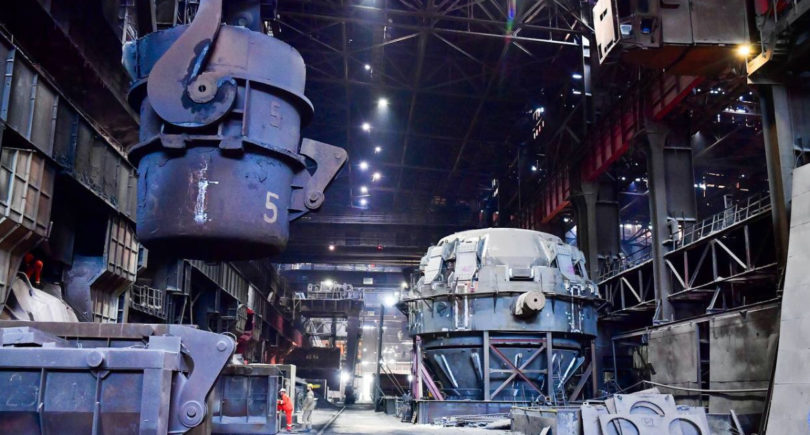
News Companies Liberty Galati 689 04 June 2025
Pig iron smelting started on June 4, and steel production is expected to start in a few days.
After almost a year of downtime, Romania’s largest steel mill, LIBERTY Galați, has resumed production by launching blast furnace No. 5. This is an important milestone in the restructuring plan of the enterprise, which remains a strategic asset for the country’s economy, the company said in a press release.
According to CEO Radu Ionescu, with the launch of the blast furnace and rolling lines, the company will once again supply high-quality domestic steel for defense, infrastructure, construction and shipbuilding. New jobs in related industries are also expected to be created.
Pig iron smelting started on June 4 at 8:00 a.m., and steelmaking is expected to start in a few days after the chemical composition of the pig iron is stabilized.
“Next week, the steel will be fed to the continuous casting mill and then to the rolling mills to produce plates, galvanized and organic coated products, pipes, coils, etc.”, comments Remus Borza, President of EuroInsol.
In the first few weeks, daily steel output will be around 4.3 thousand tons, and then increase to 6.5 thousand tons, which is the break-even point.
Borza noted that the resumption of production was made possible by the coordinated efforts of the team, cost optimization and support from government partners. The restructuring plan is expected to be approved by the Galati Court by July 5.
LIBERTY Galati pays up to €100 million in taxes annually and remains one of the largest employers in the region. In the current geopolitical context, the company also expects to become a key steel producer for the future reconstruction of Ukraine.
In March of this year, it was announced that Liberty Galați would receive government support to resume operations. According to Romanian Minister of Economy Bogdan Ivan, the company will play an important role in supplying raw materials to defense industry plants, including those in Brasov, Cuzhiru, Sad and Dragomirteş.
On March 5, the court ruled to introduce a preventive process at the company, which provides temporary protection from enforcement of debts. The plant had two months to present a restructuring plan to its creditors. As reported, the plant is in difficulties due to the consequences of the war in Ukraine, high energy prices and large volumes of imports from outside the EU, as well as new US tariffs on steel imports.



